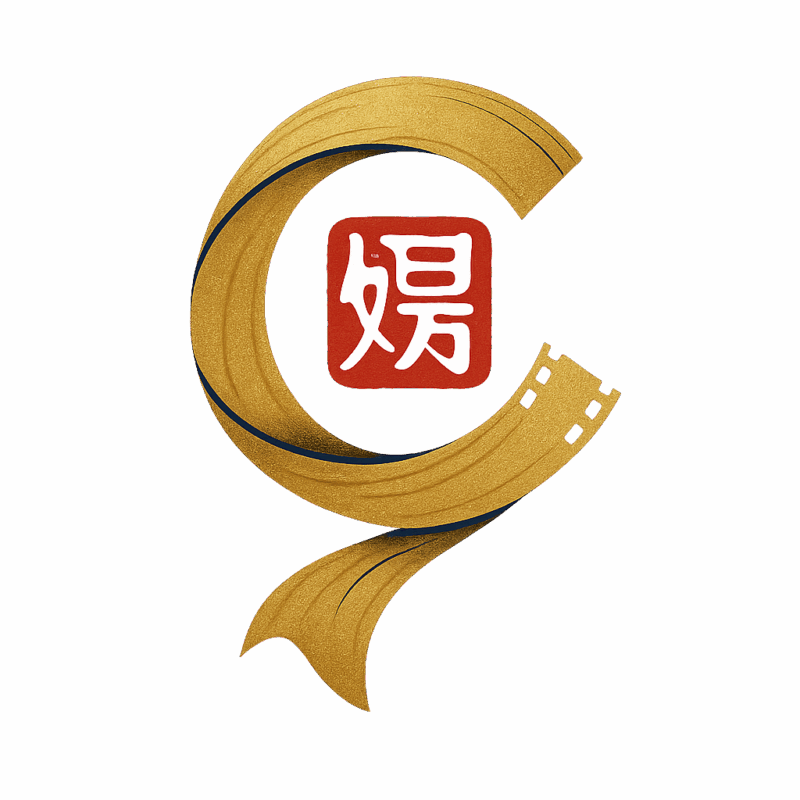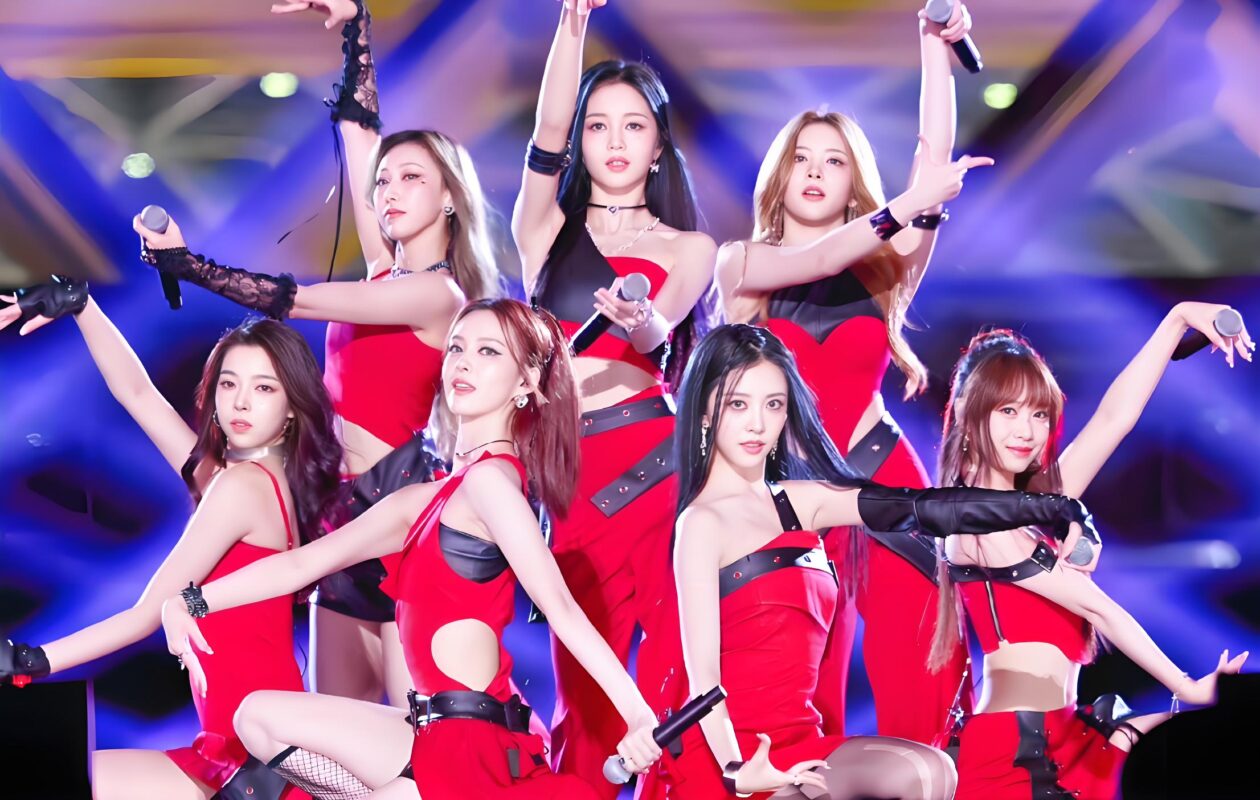I. Genesis & Ideology: The Chromosome Entertainment Revolution
R.E.D. represents the culmination of Zhang Yixing’s (Lay’s) decade-long vision to bridge K-pop’s precision with China’s cultural ethos through his label, Chromosome Entertainment. Debuting in early 2024 as the label’s flagship girl group, R.E.D. embodies a radical departure from conventional idol formulas. The group’s name—Red Era Diva—serves as a manifesto: “Red” signifies both Chinese cultural pride and revolutionary energy, “Era” denotes their ambition to define a new epoch in Asian pop, and “Diva” reclaims the term as a symbol of artistic mastery rather than mere celebrity. Zhang’s philosophy prioritizes “complete artist development,” requiring members to participate in songwriting, choreography, and conceptual design, thus positioning R.E.D. as a self-sustaining creative ecosystem rather than a manufactured product (from 163.com). This approach has attracted comparisons to industry pioneers like JYP’s “artist-centric” model but with distinctly Sinocentric storytelling.
II. The Septet: Member Archetypes & Synergy
Comprising seven rigorously trained performers—Hu Jingyi, Liu Tingxiu, Zhou Luoxi, Peng Xiangrui, Li Yulin, Li Qianyu, and Yin Zilu—R.E.D. merges diverse talents into a cohesive unit (from Bilibili).
- Hu Jingyi (Center/Lead Vocalist): Noted for her “国泰民安脸” (Guótài Mín’ān liǎn—a “face representing national peace and prosperity”), Hu embodies traditional Chinese beauty ideals fused with contemporary stage dominance. Her technical vocal range anchors the group’s harmonies, particularly in ballads incorporating Peking opera falsettos.
- Liu Tingxiu (Main Dancer): A former national wushu competitor, Liu integrates martial arts kinetics into choreography, executing aerial spins and weapon-style fan routines that reference classical Chinese dance forms.
- Zhou Luoxi (Conceptual Architect): As the primary lyricist, Zhou weaves Tang Dynasty poetry motifs into modern narratives, exemplified in tracks like Afterlife (浴火), which allegorizes resilience through phoenix mythology.
- Specialized Unit Dynamics: The Li twins (Yulin & Qianyu) handle rap-sung hybrid transitions, while Peng Xiangrui’s ethereal mezzo-soprano and Yin Zilu’s percussion expertise (using guzheng samples) create multilayered soundscapes. Industry analysts note their “seven-door” choreographic symbolism—each member represents a portal to different cultural archetypes, from warrior maidens to literati scholars.
III. Artistic Identity: Sinofuturism in Sound & Aesthetics
R.E.D.’s discography synthesizes electro-Mandopop with traditional instrumentation, creating a genre dubbed “Sinofuturism” by Billboard China. Their debut EP 赤 (Chì—”Red”) features:
- “A.O.1.G” (Art of One Generation): A cyberpunk track layered with suona horns and algorithmic glitches, critiquing AI-driven cultural homogenization while affirming heritage.
- “Afterlife” (浴火): Performed at the 2025 Jiangsu TV Spring Festival Gala, this anthem merges EDM drops with Jiangnan folk melodies, accompanied by fan dances that reinterpret Tai Chi movements as battle sequences.
Visually, their aesthetics oscillate between neo-Imperial grandeur (e.g., hanfu redesigned with LED circuitry) and post-apocalyptic warrior regalia, symbolizing cultural continuity amid modernity. Music videos deploy augmented reality to superimpose Song Dynasty landscapes onto urban decay, a technique praised by Rolling Stone as “digital heritage revivalism.”
IV. Performance Pedagogy: The Chromosome Training Matrix
R.E.D.’s stagecraft stems from Chromosome’s proprietary training system, which emphasizes:
- Martial Arts Integration: Daily wushu and qigong sessions enhance breath control for live singing during intense choreography, reducing reliance on lip-syncing.
- Cultural Immersion Modules: Members study classical literature and calligraphy to inform lyrical depth, with Zhou Luoxi citing poet Li Bai as inspiration for metaphoric wordplay.
- Tech-Forward Stage Design: Their 2024 “Peace Elite Stimulus Night” performance featured holographic silk dragons that interacted with members’ movements via motion capture—a feat engineered in collaboration with Tencent’s gaming division.
This methodology has redefined audience expectations, with concerts resembling theatrical epics rather than idol showcases.
V. Cultural Impact & Industry Disruption
R.E.D. transcends entertainment as cultural diplomats advocating “soft power 3.0”:
- Global Recognition: Their Afterlife stage at the 2024 Weibo Music Awards went viral after KARA’s Nicole Jung praised its “redefinition of girl group physicality”.
- Commercial Paradigm Shift: Endorsements eschew typical beauty brands for partnerships with institutions like the Shanghai Museum, launching limited-edition jewelry based on Ming Dynasty artifacts.
- Academic Interest: Peking University’s media studies department analyzes R.E.D. as a case study in “post-colonial pop,” where Asian artists reclaim narrative agency from Western-centric industry models.
Critics argue their blend of tradition and innovation has pressured legacy agencies to prioritize artist autonomy, signaling a broader transformation in China’s entertainment ecosystem.
Conclusion: The Crimson Vanguard
R.E.D. epitomizes a seismic shift in global pop: a collective where cultural heritage isn’t ornamental but foundational. By weaponizing Chinese aesthetics through technological and performative innovation, they challenge homogenized idolatry while offering a template for culturally rooted artistry. As Zhang Yixing asserted at their debut, “This isn’t just a group—it’s an era.” With plans for a 2026 world tour integrating AI-generated traditional opera backdrops, R.E.D.’s crimson revolution is poised to deepen its global imprint.

